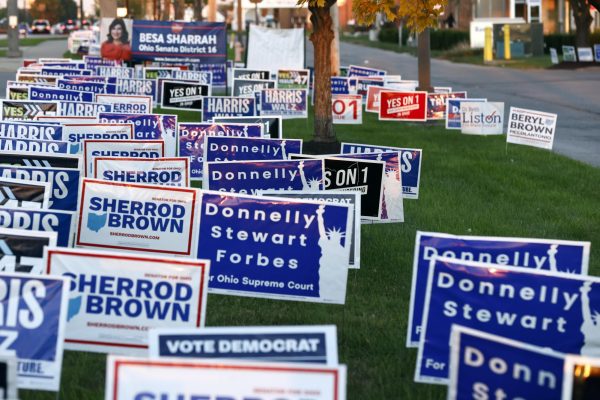Being Right: On President Trump’s Proposed Tariffs
Last Thursday, President Trump made the weighty announcement (expect this column to be saturated with metallic metaphor) via Twitter that he and his administration would be pursuing a 25 percent steel import tax and a 10 percent aluminum import tax. This predictably came at the suggestion of Trump’s early campaign team, but later and more surprisingly by his Commerce Department that recommended a 24 percent tariff on steel and 7.7 percent tariff on aluminum. Round numbers aside, this decision was met with swift condemnation by all of the international business community excluding only American metal producers. It was followed by prompt afternoon tumbles in the DOW and NASDAQ. And of course, it was met with ironic but prescient laughter from anyone who has ever picked up a copy of Atlas Shrugged (the book is quite literally about government cronyism in a fictional steel industry).
The next day, the world woke up to an even further rattled global economy, promises of retaliation from both Canada and the European Union, as well as various reports from within the White House that staff had not been made aware of the announcement and were once again behind the eight ball in making the pronouncements of @TheRealDonaldTrump an actionable reality. The weekend to follow was filled like a blast furnace of liquid ore with commentary on the Chinese response to potential tariffs, the determining factor in whether or not a trade war will actually take place.
While a Ricardian economics expert I most certainly am not, the claims that trade wars are “good” or “easy to win,” as the president’s later tweets purport, seem to belong in an era with wooden ships, curly wigs, and use of the word “bullion.” I don’t mean to dwell on this point, but it seems intuitive that engagement in a trade war can only mean higher prices for American consumers of all stripes. What’s more, according to a 2017 U.S. Department of Commerce report, over 70 percent of steel consumed in the U.S. is still made in the U.S. While it is true that contemporary U.S. metal-makers have lost much of the advantage they once had over global rivals, experts attribute this to mistakes made by the producers themselves, not the process through which their products are traded.
It seems clear to all but the president’s most fervent supporters that should a tariff be put in place, the administration will be tying an anchor – made of the iron alloy – to their ankles in this winter’s midterms and beyond. However, for actual free-trade-loving conservatives, is this a bad thing? A protectionist spectre was hiding around almost all corners of the 2016 presidential election and now is perhaps an ideal time to engage with that (preferably in near avoidance of an actual trade war). Trump is a phenomenally unpopular president and his poorly informed and implemented tariffs, should they be enacted, will with any luck quash the protectionist sentiments so insidiously that grew from the Sanders, Trump and Clinton campaigns two years ago. To be sure, protectionism under any of these three would have looked respectively different, but reception of the concept was obvious in all and troubling to free-trade conservatives ever since it became clear none of their comrades were left in the race, circa May 2016.
At the end of the day, I can think of no better harbinger for the failures of protectionism than Donald Trump. Trade war or no, his enemies will surely continue to broadcast an economic reality athwart what the Trumpster base would like to believe, yet aligned with what more traditional conservatives have been pushing all along. As this drama continues to play out, it is likely that more and more argumentation in favor of free-trade, perhaps only for the sake of opposing Trump, will be made by people who were more than willing to support Sanders/Clinton rhetoric remonstrating trade deals like NAFTA and TPP (may it rest in peace). This is a very good thing. Protectionism will sink, and if a trade war can be avoided, it’s best the American polity learn that as soon as possible and vis-a-vis a president that can be readily critiqued.
Contact Ryan Zoellner at [email protected].








